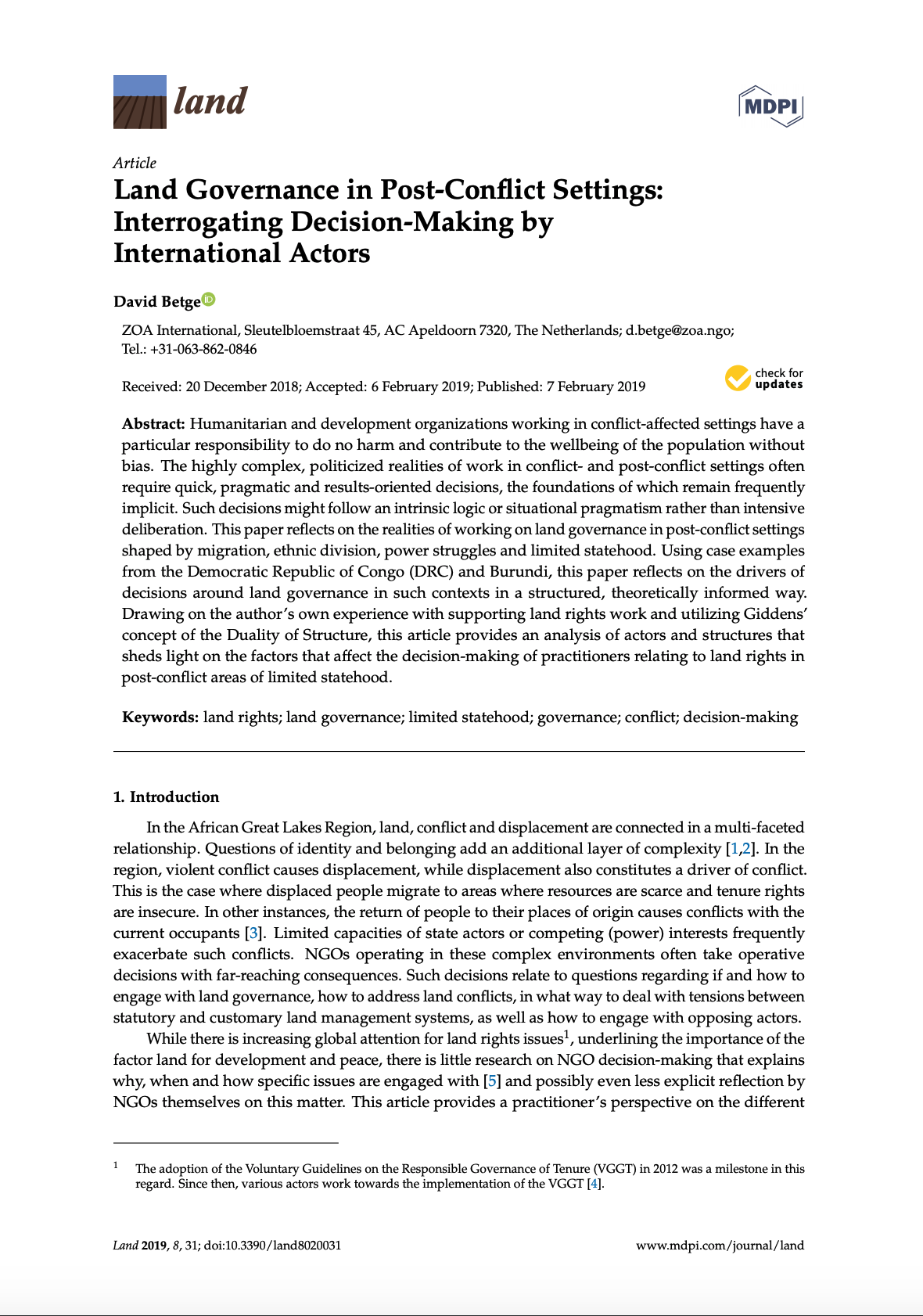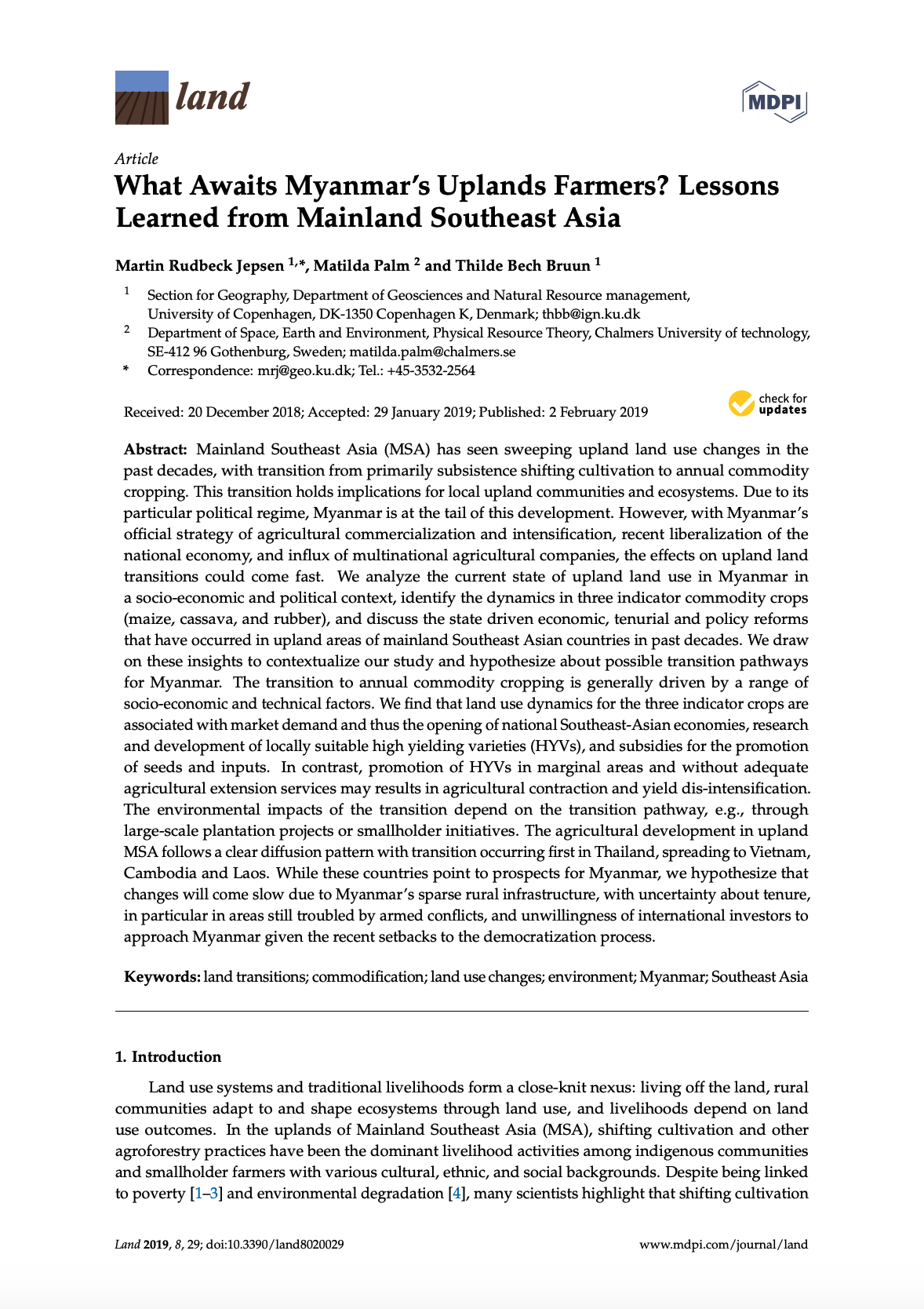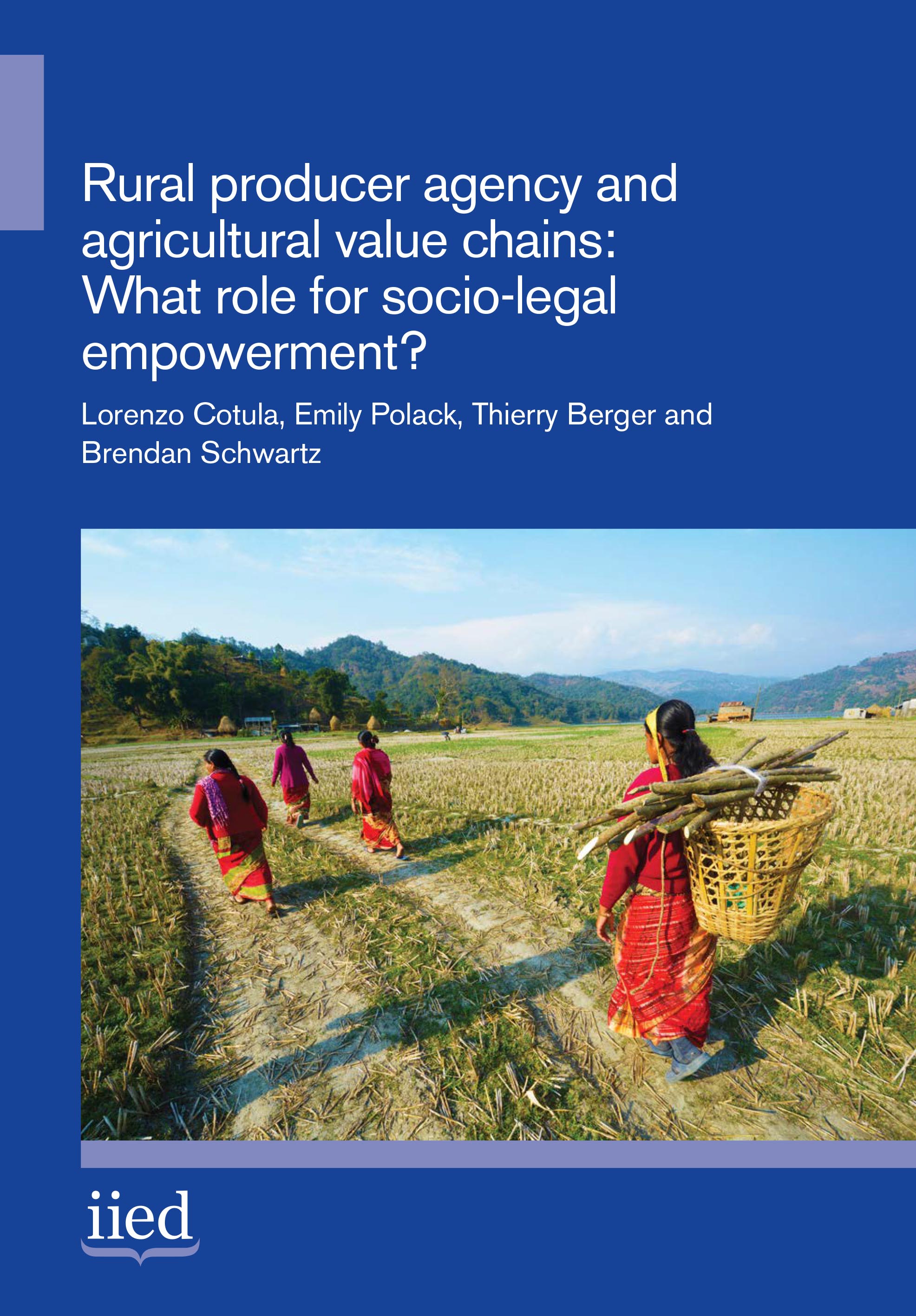Comunidad Nativa Aerija. Titulación de Comunidades Nativas.
Este estudio tuvo como objetivo analizar los procesos de titulación en varias comunidades nativas y sus consecuencias para sus habitantes y los bosques, a fin de brindar información que permita mejorar las iniciativas de titulación en curso. La información de este estudio fue recolectada mediante tres métodos: (1) Entrevistas con informantes clave, (2) Grupos focales, y (3) Encuestas en hogares. Este informe presenta los resultados del estudio a nivel de la comunidad de Aerija, Ucayali.





